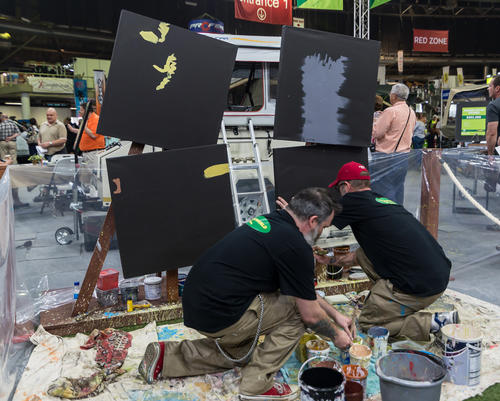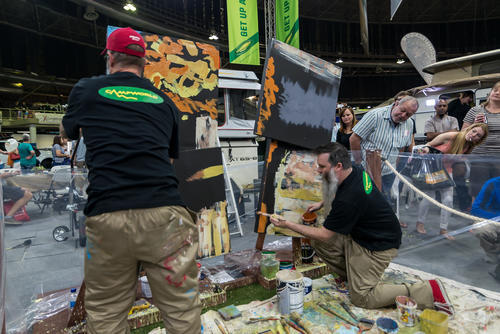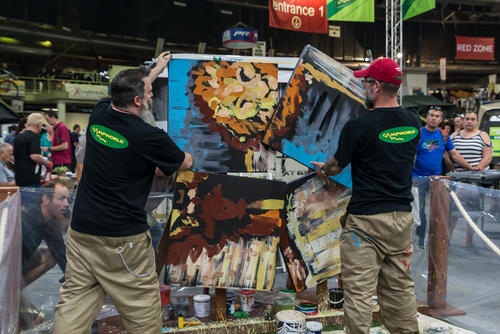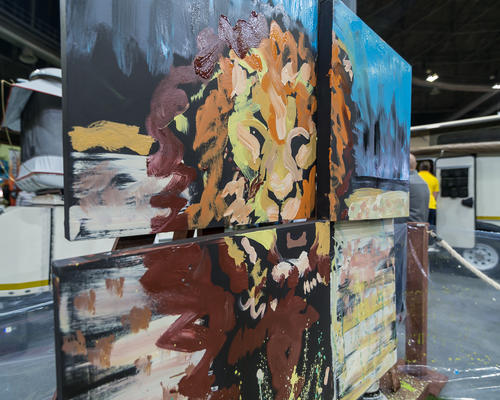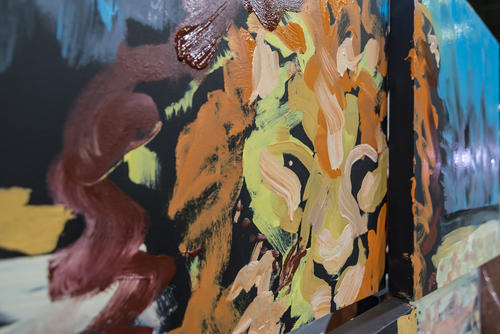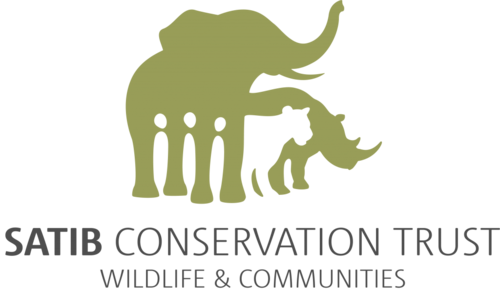Cecil The Lion Oil Painting - Charity Auction.
Check my rate
| Main centres: | 1-3 business days |
| Regional areas: | 3-4 business days |
| Remote areas: | 3-5 business days |
Product information
Cecil the Lion Charity Auction - Hangwe Lion Project
You are bidding on 4 x paintings which combine to create an image of Cecil the Lion, bid once for all 4 paintings.
BRIDGING THE GAP BETWEEN WILDLIFE CONSERVATION AND COMMUNITY WELFARE IN AFRICA
Africa is a vast continent with 359 national parks declared for conservation in 53 countries. Within the 15 countries which make up the Southern Africa region, there are 152 national parks, which does not take into account the considerable wildlife protection areas that are designated as private game reserves, forest reserves, marine reserves, national reserves and natural parks. With all this space made available for nature conservation, you would think that wildlife is well protected and flourishing in Africa. Sadly, this is not the case. With a human population of over a billion people, many of whom live in poverty, the potential for human-wildlife conflict for arable space and livestock grazing coupled with the threat of wildlife poaching poses a great risk to the survival of wildlife in Africa.
It is against these odds and with regard to these areas of conflict that the SATIB Conservation Trust seeks to find solutions and fund approved wildlife research projects, anti-poaching programmes and community education initiatives that deliver tangible and sustainable results to reduce conflict between the human and animal inhabitants of Africa, ultimately ensuring the conservation of the continent’s wildlife.
Much of the research being conducted in Africa is by a group of dedicated, hard-working scientists, local community members and volunteers who need your help and support. Every donation to the SATIB Conservation Trust makes a difference and 100% will go to your selected cause (our admin costs are sponsored separately).
ANTI-POACHING
The poaching of animals for their horns, tusks, bones (as is the case with lions) or hides poses one of the most significant threats to the survival of many species in Africa including rhino, elephant, lion, leopard and cheetah and anti-poaching initiatives are the focus of many conservation projects. Poachers have become organised and almost militarised in their activities and significant steps need to be taken in order to combat their actions. Anti-poaching units that patrol reserves and pass on information to local authorities are invaluable. Patrolling from the air allows for the monitoring of vulnerable areas giving incredibly accurate indications of what is happening over large tracts of land, parts of which are often inaccessible by foot or vehicle. The SATIB Conservation Trust, in collaboration with the Wilderness Foundation has provided a 6 cylinder Jaribu Bat Hawk Light Sports Aircraft, to the Lugenda Wildlife Reserve in Mozambique to assist with anti-poaching efforts and more initiatives like this could make inroads in the war against poaching.
WILDLIFE RESEARCH
Kgalagadi Gallery1 The real crux of conservation efforts is research. Some projects are undertaken to understand the demographics, social structure and dynamics of an animal population as well as their specific ecological and social requirements. Studies of the threats facing a species in a particular area can inform long-term conservation management plans to ensure their survival.
One of these threats is disease. Many diseases in wildlife populations can be transferred to domestic animals (and vice versa) and in some cases to humans and this research is essential for conservation plans.
Research that seeks to gain an understanding of both the underpinning ecological factors and the human socioeconomic factors that contribute to human-wildlife conflict situations is another important area of research throughout Africa whilst other research projects aim to gather data about the long-range movements of animals between protected areas. This research underscores the importance of preserving corridors of natural habitat to allow for genetic diversity, avoiding inbreeding – an essential element in the long-term survival of a species as a whole, as well as providing opportunities to escape natural & unnatural threats. The Hwange Lion Research project is one of the projects undertaking leading research across multiple areas and is one of the most intensive and long-term lion projects in Africa. Elephants for Africa have an holistic approach to their research incorporating long-term monitoring of elephants, elephant behaviour and wildlife-livestock disease interface alongside the boundaries of wildlife areas.


